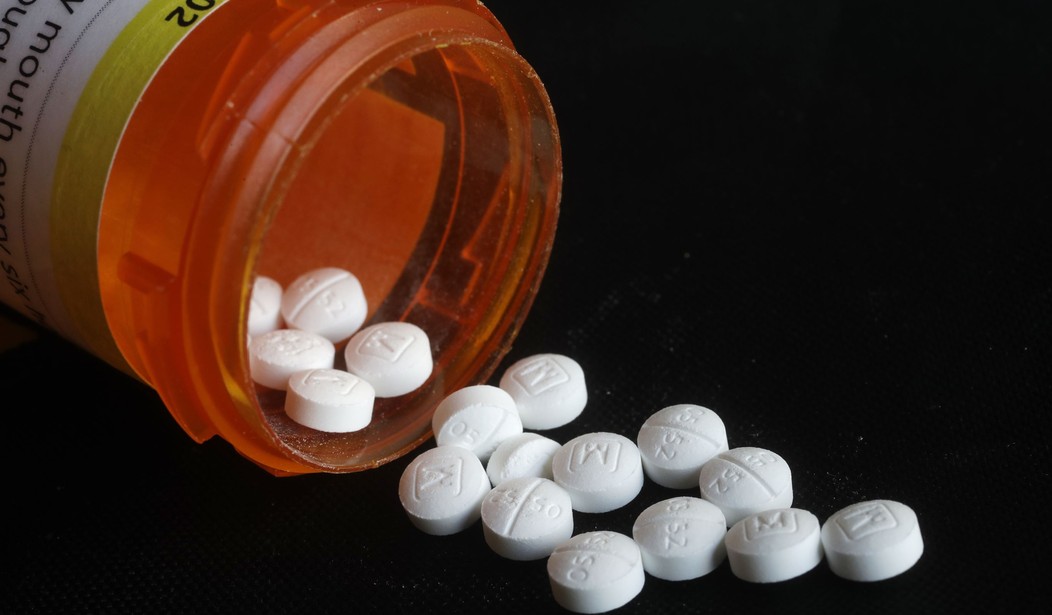Biden has made lower drug prices the centerpiece of his presidential campaign. He’s been telling the story of how he lowered drug prices everywhere: His campaign ran an ad during the Lions-Packers game on Thanksgiving, he touted it during his State of the Union, and he uses it in nearly every campaign stop. In Biden’s telling of the story, since he’s authorized the government to do more drug price-setting, seniors are saving thousands of dollars a month.
The problem for Biden, like many stories he’s told over the years, is this story is just not true. In fact, it’s laughable. Let me explain.
One of the policies contained in the “Inflation Reduction Act” Biden is touting is a provision that empowers Medicare to negotiate drug costs with drug manufacturers. There’s just one pesky little issue with that provision. It hasn’t gone into effect yet. And it won’t—until 2026. Until then, we don’t even know if this provision will work as well as the current model. Currently, we have a private market entity dedicated to negotiating with drug manufacturers: Pharmacy Benefit Managers (PBMs). And they are really good at it, adding $192 billion in value to society annually compared to a manufacturer price-control regime.
Another one of the policies contained in the “Inflation Reduction Act” is a redesign of the Medicare Part D benefit so that it caps seniors’ out-of-pocket drug at $2,000—starting in 2025. Limiting the amount that seniors have to pay for drugs sounds great but consider the consequences: In preparation for that new out-of-pocket cap, Part D plans are driving up premiums and offering fewer choices. In fact, premiums have skyrocketed 22% and there’s been a 50% reduction in plans compared to the first year of the program. In effect, the Biden administration and their allies in Congress squeezed the balloon, deflating what some seniors pay out-of-pocket for drugs but inflating the premiums all seniors have to pay, resulting in a worse-functioning market.
Recommended
The last piece of evidence Biden offers to explain how he’s driving down drug costs for Americans is a $35 per month out-of-pocket cap on the cost of insulin. But the price of insulin was collapsing long before this cap went into effect. At the end of 2021, insulin biosimilars had begun to enter the market, and in a short time, due to enhanced competition, the cost of insulin for most patients fell dramatically—even below the $35 per month out-of-pocket cap. Even more ironically, this policy actually gave drug manufacturers the cover to raise their prices on insulin products, resulting in less cost savings than if the Biden administration had simply let the private market work.
As you can see, all these government interventions in the private drug market have so far only resulted in higher health care costs. Instead, Congress should be rallying to promote and protect the free market solution to high drug costs: Pharmacy Benefit Managers (PBMs).
This previously little-known industry has been discussed in Washington a lot recently, but most people still don’t understand what PBMs do.
At their core, PBMs are paid by employers, governments, unions, and health plans to do four things: One, process billing and claims for the drugs you’re prescribed; two, build and manage pharmacy networks; three, negotiate prices with drug manufacturers; and four, manage the utilization of drugs. PBMs function and create value a lot like your private health coverage plan.
By doing these four things, PBMs deliver greater patient safety, healthier outcomes, and healthcare affordability to the people that use them. It’s estimated that PBMs will prevent 1 billion medication errors over 10 years and save payers and patients over $1,000 per person per year. So, you may not realize it, but you probably are the beneficiary of a PBM. In fact, PBMs are the secret ingredient that historically made Medicare Part D so successful.
What does all this do with Biden and his healthcare record? He’s touting solutions to problems that are already actively being solved through the private market—without the government’s help. PBMs already successfully negotiate with drug manufacturers, they already design benefits that protect seniors from high premiums while limiting high out-of-pocket costs, and they already force insulin manufacturers to compete against one another to achieve lower costs.
Republicans get beat up every election cycle on healthcare issues. But, armed with the facts, the GOP can push back on Biden’s claims about his record and shine a light on how private industry works more effectively than the government.
Ann Marie Buerkle is a former nurse and congresswoman who served as the Commissioner and Acting Chairwoman of the Consumer Product Safety Commission.

























Join the conversation as a VIP Member